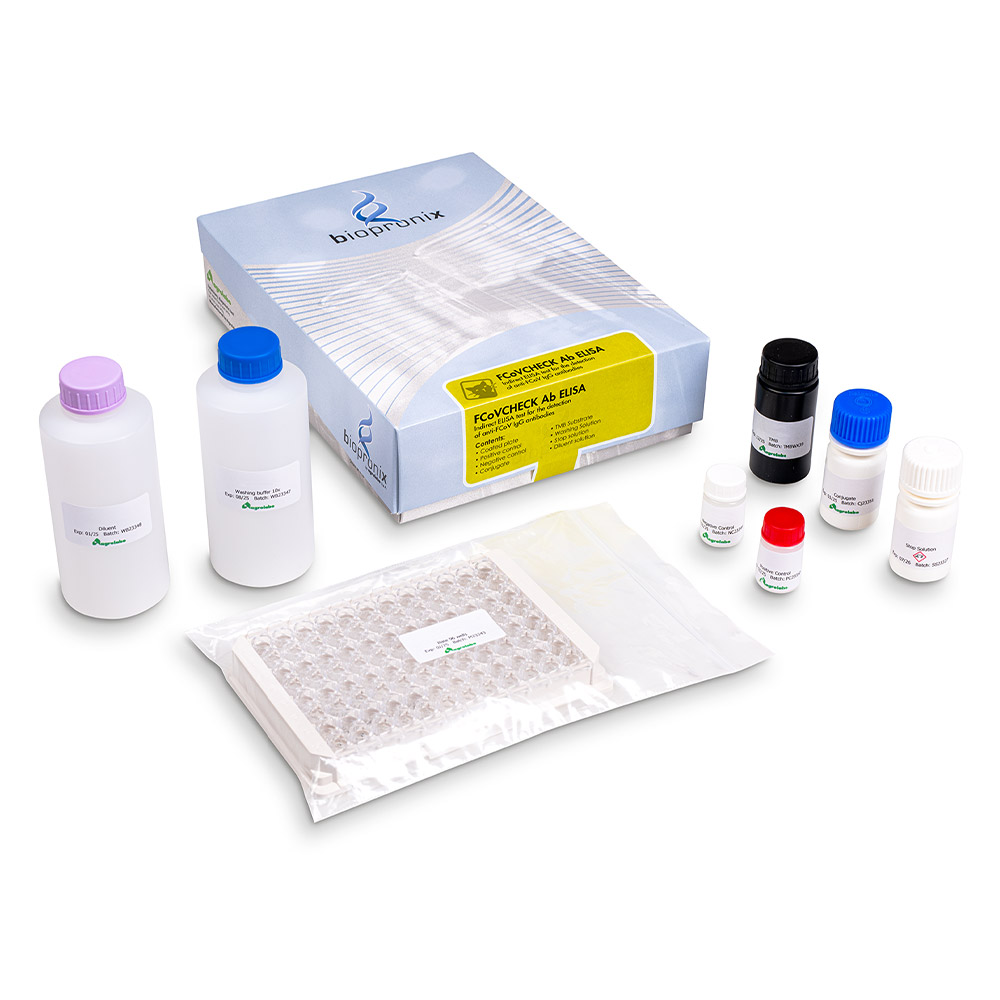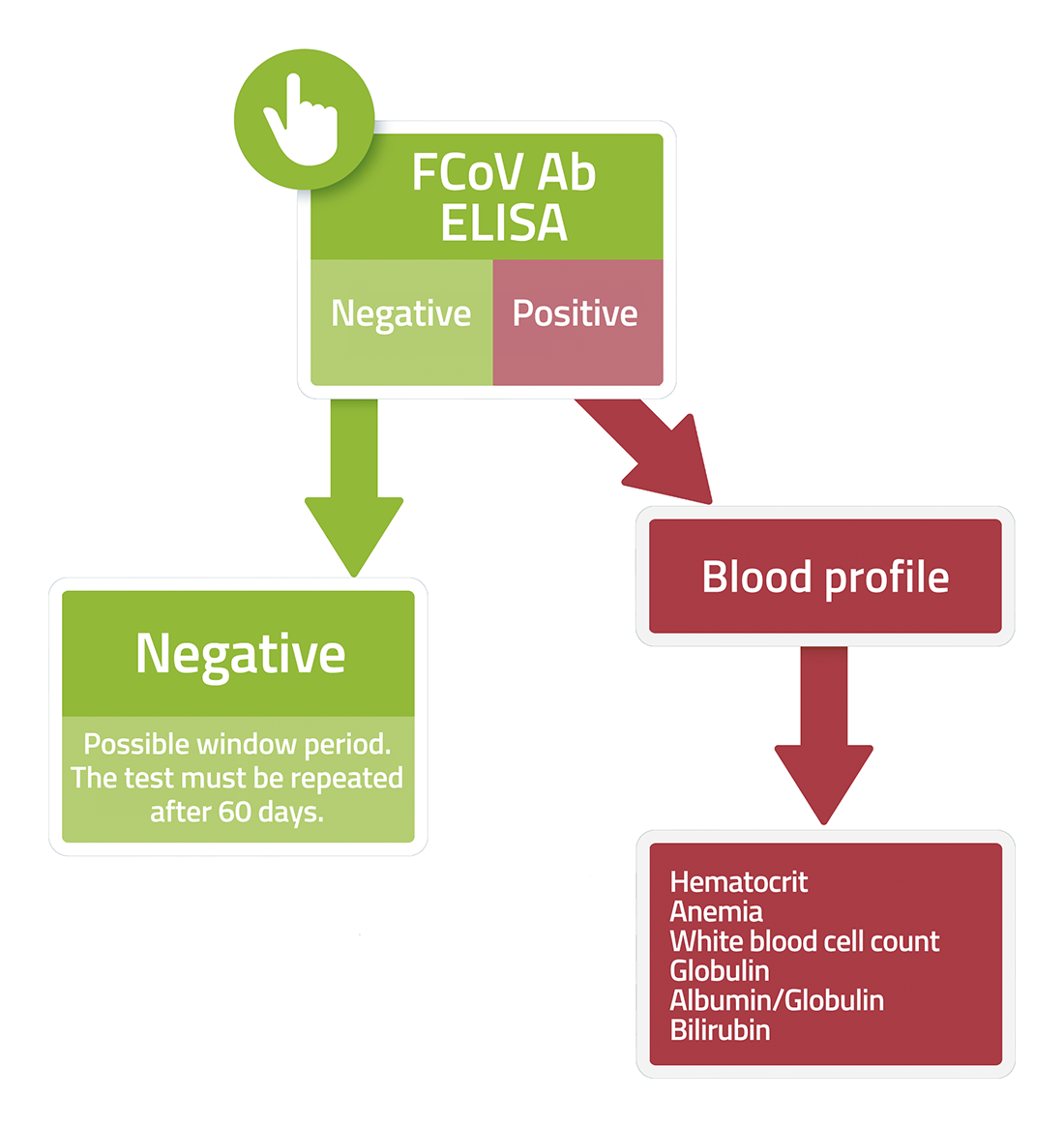FCoVCHECK Ab ELISA
ELISA kit for the detection of anti-feline Coronavirus antibodies
This kit is based on the indirect ELISA immunoassay technique for the detection of anti-FCoV antibodies in feline serum or plasma.
Feline Infectious Peritonitis (FIP) is a disease caused by feline coronavirus (FCoV). In most cases, FCoV does not cause significant problems: they live in the intestine and are transported in the body by normal blood monocytes. The transmission of virus from cat to cat occurs through faeces and fecal contamination of the environment, and is therefore more likely in environments where there are numerous animals (farms, colonies, etc…). During the replication in the intestine, FCoV can mutate and give rise to the variants, which can cause FIP. Serology (IC, ELISA, Immunofluorescence) or PCR (Polymerase Chain Reaction, a technique that highlights the genome of the virus) performed on the blood can only tell if a cat has FCoV, but not if the virus present is the intestinal or mutated one. On the contrary, in the full-blown stages of the disease cats can be seronegative because antibodies are "seized" in the lesions. On the other hand, antibody titers may be high even in the absence of disease in kittens that have received antibodies from their mother or in breeding cats where, due to continuous re-infections, the titers fluctuate over time.
All these characteristics make serology and PCR not always useful for diagnosis in sick cats, but essential to control the spread of the virus in the breeding and therefore, to prevent the onset of the disease.

